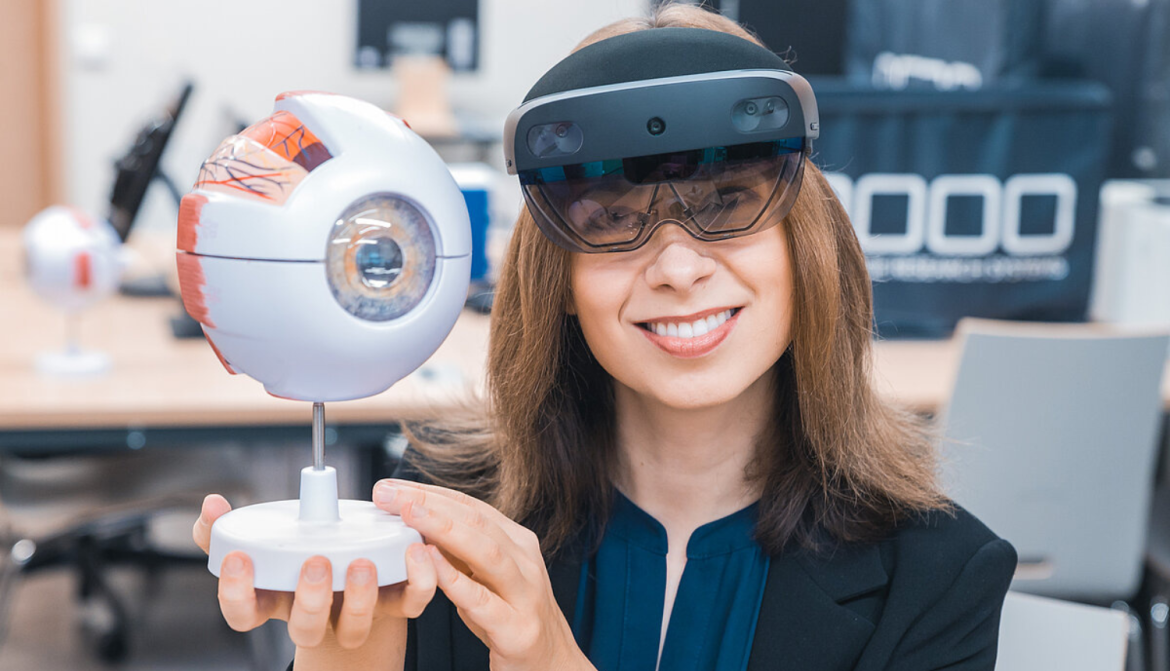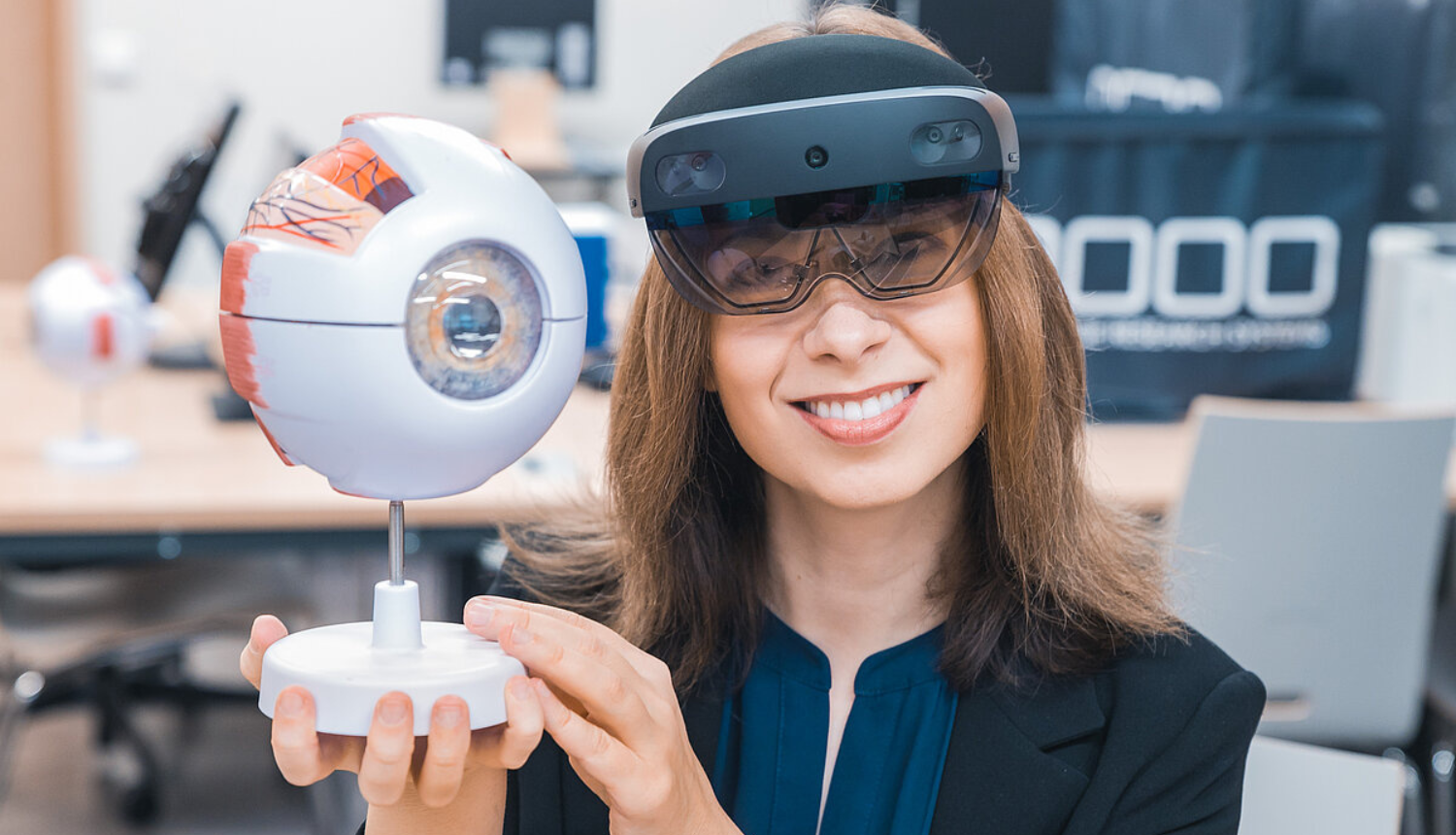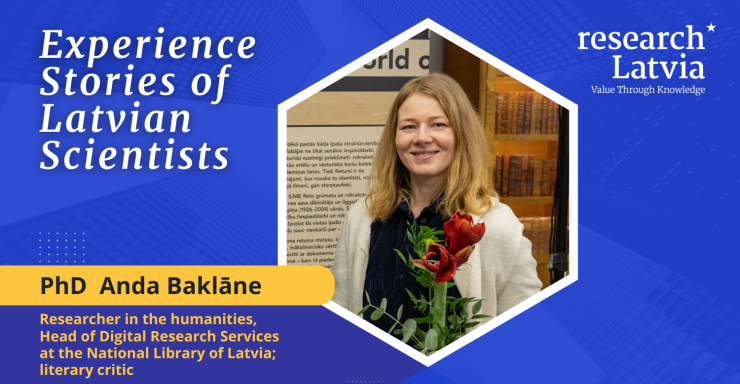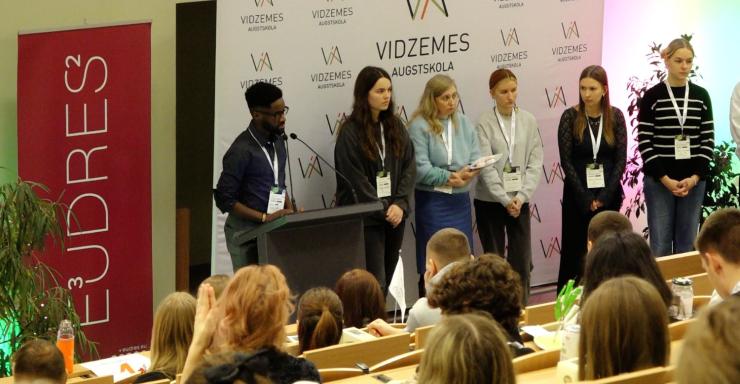Just as the invention of the steam engine reshaped the world in the second half of the 19th century, the rapid development of digital technologies has not only restructured many sectors of the economy and transformed the labour market, but has also fundamentally altered our everyday habits—both in the workplace and beyond. Although technological advancements are driven by the idea that technology will help us become more efficient and complete tasks faster, freeing up human resources for creative activities and innovation, there is another side to the story. We still lack clear answers regarding the consequences of intensive technology use, sedentary lifestyles, and the ever-increasing volume of information on human health and well-being, as well as whether work efficiency truly increases as a result.
Human resource development is one of the priority research areas at the University of Latvia (UL). This year, researchers have initiated a comprehensive study titled "An Interdisciplinary Approach to Improving Work Capacity and Productivity in a Society Experiencing Ergonomic and Psychosocial Overload in Work with Digital Devices." The primary goal of the research is to identify effective, personalised solutions that reduce the risks associated with digital device use and enhance work capacity and productivity. Led by Tatjana Pladere, a prominent researcher at UL’s Faculty of Exact Sciences and Technologies and an optometry specialist, and joined by experts from various university faculties, the study aspires to be internationally innovative and potentially serve as a basis for commercialisation and the development of UL's external services in the future.
"This is an important start to something large and ambitious on an international scale. We aim to explore various aspects of ergonomic and psychosocial overload to gain a comprehensive understanding of the risks associated with working with digital devices. This will help us develop guidelines for personalised solutions to reduce these risks and improve employee productivity," says Pladere.

To ensure that the solutions developed by scientists are applicable in real life, companies and employees are also participating in the study. "Our priority is that science should not be detached from practical application- that our work has maximum impact and added value."
Physiology Detectives
Previous research in this area has been relatively fragmented, and most of the developed guidelines have been standardised, failing to take into account individual abilities, needs, and the specific nature of different jobs. “That’s one of the peculiarities of our time - we want everything to happen very quickly and expect immediate results, so we occasionally analyse something, look at one specific aspect, and generalise from there. We like to believe that one approach will solve many problems, but that’s not how it works. Yes, standardised solutions might work for most people, but for others, they could worsen the situation,” the researcher notes.
The project is currently in the data collection and analysis phase. However, even now, researchers are observing how working with digital devices affects people differently in various aspects, including visual function, heart activity, muscle fatigue, and more. "At the end of a workday, one person may show significant physiological changes, while another shows almost none. Interestingly, these indicators don’t always correlate with how a person feels. This means someone might not even notice a decline - if a person feels tired at the end of the day, objective measurements won’t necessarily reflect that. For example, someone might feel their vision is getting worse, but measurements show no changes. And the opposite can also be true - someone feels fine, but the data reveals changes in certain parameters. Moreover, fatigue and discomfort may not be due to physiological processes, but rather to psychological and emotional components. When studying people, there are always some mysteries involved, and we act like detectives, helping to understand how various factors are interrelated…"
You can read the full article in UL’s journal Alma Mater on the website issuu.com.


